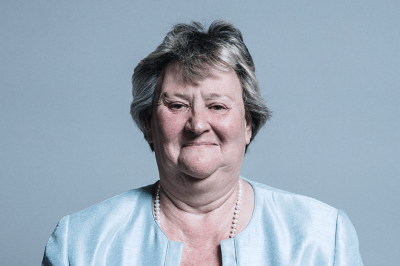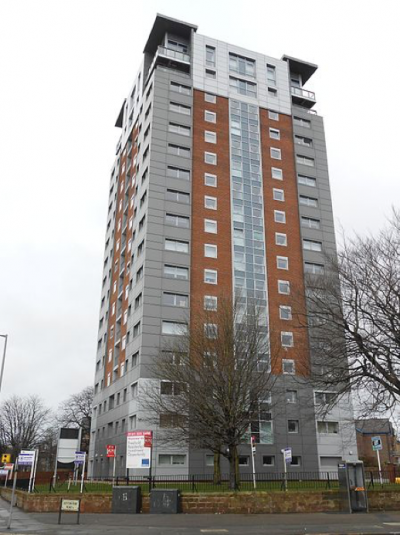Do freeholders provide a unique and valuable service?
This post comments on the recent Inquiry by the Select Committee on Leasehold Reform in relation to cladding and freeholders. The Inquiry builds on the Government and Law Commission programmes investigating leasehold/commonhold and asks whether the Government’s proposed reforms go far enough.
Posted:
Time to read:
The post-Grenfell problems feed into the wider debate about leasehold reform, particularly in relation to the role of freeholders. What is the justification for ground rent? Is it necessary to have a freeholder? If commonhold is adopted, is it realistic to expect unit owners to engage in governance? Voices within this debate are loud and opposed. There is much at stake. The Inquiry steps into this conversation with the question: ‘Do freeholders provide a unique and valuable service, such that the financial cost to leaseholders … is justified?’ (para 13).
Evidence given to the Inquiry by Long Harbour Executive Director Richard Silva refers to the ‘stewardship role’ performed by freeholders, acting ‘as a long-term policeman’. (Long Harbour has ‘ground rent portfolios in excess of £1.4 billion, comprising over 160,000 leasehold properties’.) A further perspective provided by the Minister for Housing and Homelessness, Heather Wheeler MP is that freeholders remove the burden of governance from flat owners:

Heather Wheeler MP for South Derbyshire
Image shared under the CC BY 3.0 licence; original here.
… there will be some people in blocks of flats who really just want to go home at 6 o’clock or 6.30, shut the door and have nothing to do with the running of it. They just want to pay a managing agent, have a freeholder and not have those concerns at all.
Both claims may have some validity. There is some evidence that being involved as a Right to Manage director is burdensome, and can create tensions with fellow leaseholders. But there is also a value to leaseholder ‘self-control’ or ‘voice’ – the importance of the opportunity for democratic engagement with decisions about management of their building rather than having those decisions taken by a freeholder. There is much anecdotal evidence that freeholder control is not what many leaseholders want. The Select Committee met with 50 leaseholders at the opening of the Inquiry and when asked what they wanted they ‘responded, with near unanimity: “abolish leasehold”’. Self-governance may be burdensome, but appears to be preferred.
Likewise, some freeholders may be good stewards but there is again no robust evidence. Martin Boyd, Chair of Trustees, Leasehold Knowledge Partnership, observes that there is generally no financial incentive for freeholders to focus on stewardship:
… you have an entity that is purely there to make a profit from the title they own in the building. They have no genuine interest in maintaining the quality of the building. If it is a 999-year lease, they are not going to get it back for a very long time. It matters not to them whether it is in good condition or bad condition. It does to the people who live in and own the properties.

Sir Peter Bottomley MP for Worthing West
Image shared under the CC BY 3.0 licence and hosted on Wikimedia
Similarly, Sir Peter Bottomley MP, All-Party Parliamentary Group on Leasehold Reform stated that
[y]ou do not need an outside person owning the building for it to be looked after properly. That is the managing agent at someone’s instructions, and the instructions could be from the leaseholders …
Drawing on the response to Grenfell within this debate provides weak evidence to support the case for freeholders being necessary. The Government has repeatedly argued that building owners should ‘do the right thing’ and replace flammable cladding and insulation without cost to leaseholders. This view was repeated by Heather Wheeler MP in her evidence:
… the responsibility for making the building safe does lie with the building owner. We have repeatedly made it clear to building owners that they should do all they can to protect leaseholders from these additional costs. … LEASE will be helping leaseholders who have these bills straightaway, to point them in the right direction of where they need to go to say, ‘No, freeholder. That is up to you, and it is up to your insurers behind you.’
However, unless the freeholder was involved with commissioning and developing the building, it is unclear why the freeholder should remediate at its own cost: freeholders may have purchased the ground rent as an income stream and their financial stake in the building is unlikely to be great.
Nonetheless, there is evidence that some freeholders have helped leaseholders post-Grenfell. In its Commonhold consultation, the Law Commission state they were told of ‘cases where substantial institutional freeholders have been able to lend residents’ management companies, or right to manage companies, the necessary funds’ (para 11.4); some as loan, but some ‘without seeking to recover the money from leaseholders’ (para 11.6). In its evidence to the Select Committee Inquiry, Long Harbour instanced its response to Grenfell to illustrate the value of freeholders. They gave a specific example in relation to Heysmoor Heights in Liverpool, a 16-storey block comprising 98 flats which is part of the Long Harbour portfolio. They state that, as

Tower block on the corner of Croxteth Road and Sefton Park Road, Liverpool, England.
Image hosted on Wikimedia and shared under the CC BY-SA 3.0 licence
… freehold manager, Homeground, on behalf of the freeholder and in collaboration with the managing agent, was able to find a solution whereby the residents could remain safely in their own homes by providing emergency interest free loans to fund critical emergency measures, such as the presence of fire marshals on site 24/7, as well as works to remove and replace the unsafe cladding.
According to the local MP for Liverpool Riverside, Dame Louise Ellman (who has raised the issue within Parliament), the cost of the work is now being passed onto leaseholders with individual bills for £18,000. Nonetheless, forward funding the fire safety response did reportedly avoid the need for the building to be evacuated. Heysmoor Heights is, though, one of only a small number of private buildings where remediation has happened. The latest government statistics state that 163 private sector residential buildings are yet to be remediated, only 10 have been completed, and plans remain unclear for 48 buildings. The recently formed UK Cladding Action group is working with 20 sites. In several of these, there appears to be no direct contact with the freeholder, making resolution slow and contentious. Where contact has been made via the management company, 19 sites state that the leaseholder is responsible for all re-cladding and fire safety costs. Further, in many reported instances of ‘doing the right thing’, it is the developer who has agreed to pay and there is no published data on how many freeholders have agreed, first, to carry out remediation and, secondly, without cost to leaseholders.
Long Harbour also refer to the post-Grenfell response across its portfolio, undertaking an ‘extensive fire safety review’, and then providing support to buildings with unsafe cladding which has ‘involved not just financial support from freeholders, but also legal and administrative support in engaging with developers, insurers and other third parties liable for such safety issues.’ Another ground rent operator, CBG, similarly refers to its response in identifying affected developments and setting up ‘procedures to minimise short term risks to residents’ and ‘co-operating in establishing courses of action to rectify the problem’. CBG is also direct in its view that the costs of remediation should not fall to freeholders: the ‘overwhelming economic interest in the developments is held by the leaseholders’ and ‘the price paid by the freeholder when acquiring the freehold was based on a flow of rent over many years in accordance with leases which provide that the costs of maintenance and repair (such as replacing ACM cladding) are borne by leaseholders.’
Although some freeholders have helped with remediation, it appears, therefore, that the majority have not. In Northpoint, Bromley, the developer and the freeholder have stated that they have no intention to pay for remedial works. This is so even though under the leasehold system forward funding involves little financial risk to freeholders. Costs can be passed on through the service charge and, if leaseholders are ultimately unable to pay, the costs (and a ‘windfall’) can be recovered through forfeiture. This contributes to the anxiety of leaseholders, many of whom have spoken about fear of bankruptcy and losing their homes. Under a commonhold system, the fear of forfeiture would not exist, but there remain very serious questions about how large sums of money needed for urgent expenses can be raised. The Law Commission acknowledge the challenges in chapter 11 of its consultation. Neither the possibility of raising money by a request for an emergency contribution from unit owners nor drawing on reserve funds is likely to be feasible, leaving the only options as to sell off part of the common parts or borrow the money (para 11.11). The Law Commission note difficulties with both.
It is not easy to sort out these fire safety issues, and a commonhold system would not make it any easier. But the fact that remediation is much more advanced in social blocks than private ones shows that responsible freeholders can get things actioned if the focus is on safety.
__________
How to cite this blog post (Harvard style)
Bright, S. (2019). Do freeholders provide a unique and valuable service?. Available at: https://www.law.ox.ac.uk/housing-after-grenfell/blog/2019/04/do-freeholders-provide-unique-and-valuable-service (Accessed [date]).
Share:
